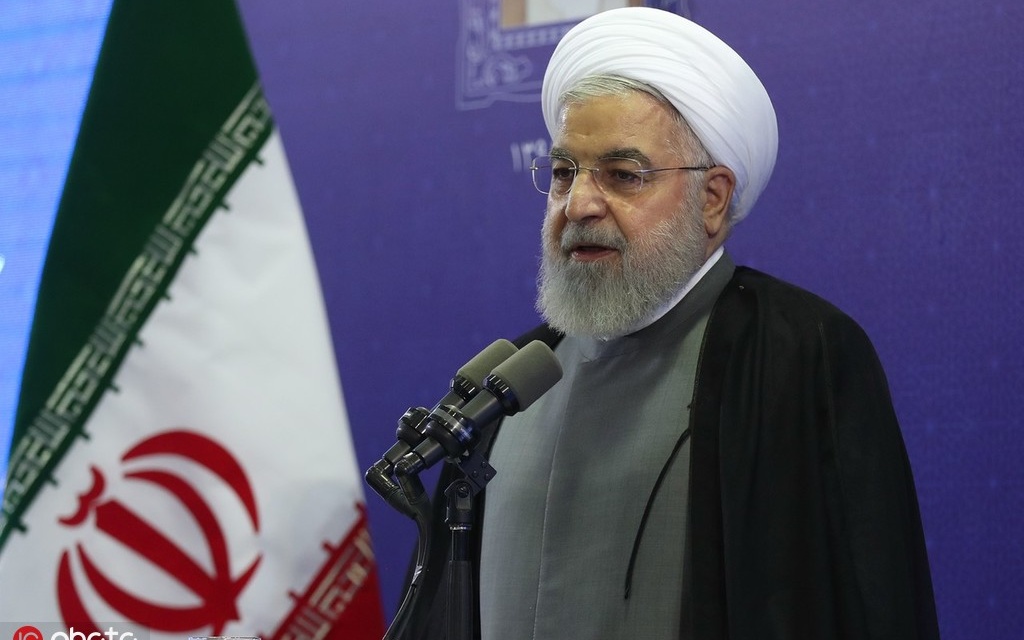President Hassan Rouhani has again threatened to suspend more of Iran’s commitments under the 2015 nuclear deal with the 5+1 Powers (UK, France, Germany, China, and Russia).
Rouhani told officials in northwest Iran on Thursday that Iran was in talks with other countries about the survival of the agreement, after US withdrawal in May 2018 and comprehensive sanctions from November:
It is possible for us to reach an acceptable result in coming weeks and it is possible to reach a result. However, if we do not reach a result, the next stage of reducing our commitments will enter into force….
We are planning based on the assumption that we will not achieve results. Our budget for this year and next, our ministries are also acting on this basis….We are acting and going step-by-step with long-term prudence.
He asserted, in the nationally televised speech, “We have a hard battle ahead, but we shall surely win.”
Last month Iran exceeded the deal’s limit on stock of 3.67% uranium, and began enrichment to a level of 4.5%. Rouhani also said that work would resume on the Arak heavy-water reactor: construction had been suspended under the agreement until a redesign reduced the by-product of plutonium, which can be used in a military nuclear program.
Tehran is still far short of the 20% enriched uranium — which can potentially be enhanced to 90% military-grade — which it had produced before 2015. However, Iranian officials say that the process for the 20% fuel may be resumed.
Rouhani declared yesterday that Iran wants a resolution but is prepared for the breakdown of talks:
The world has realized that the Iranian nation is too great to break down as a result of their pressure and threats….We will keep negotiating, but will manage the country based on failure of negotiations.
He did not specify the “some countries” whom he was addressing, but talks with European countries have failed to establish the mechanism to bypass US sanctions and prop up Iran’s troubled economy.
The European Union launched a Special Purpose Vehicle, known as INSTEX, in February for limited non-dollar trade in Iranian oil and other commodities and goods. Tehran rejected the mechanism because of “humiliating conditions” such as the EU’s concern over Iran’s missile program, activities in the Middle East, and alleged involvement in assassination and bomb plots in Europe.
Last week, in a letter to French leader Emmanuel Macron, Rouhani has offered an “alternative solution” in which the US would ease sanctions. In return, Iran would stop the suspension of its commitments, including the breaking of the limit on uranium enrichment.
See Iran Daily, July 25: In Messsage to Macron, Rouhani Offers Revised Nuclear Deal


This regime will go that is not question of if, it is when. We”ll remember EU cooperation with this murderous regime for the sake of economic scraps. We will!